On Thursday, 10 October 2019, we hosted the third Innocracy Conference. More than 200 participants and 32 speakers from 11 countries shared their insights, ideas and best practices to explore the how of democratic transformation towards more inclusive and sustainable societies at Kalkscheune, Berlin.
Modern democracy is struggling. It is being put to test by the existential threat of the climate crisis, the digital revolution and social inequality. We are increasingly realising that innovation – incremental improvements within the given democratic frame – will not suffice in meeting these challenges. It takes transformation – the rethinking and rebuilding of the democratic frame itself – to equip democratic societies with parameters that enable them to positively adapt to a shifting world.
Change-makers from both civil society and politics face the pressing question: how must we transform democracy so that it can regain lost ground? How can political systems meet the needs of their citizens without sacrificing our planet? This year’s Innocracy Conference focused on the ‘How’ of democratic transformation.
We took two core perspectives: We looked at the ‘Outer How’ of democratic transformation: what kind of democratic reforms and institutional changes are necessary to respond to the climate crisis and the technological transformation? At the same time, we looked at the ‘Inner How’ of democratic transformation: what do citizens, communities and societies need to be able to imagine and master democratic transformation? What skills, mindset and societal structures are required so that people can co-create a better democracy? These two perspectives guided the conference’s thematic fields of Sustainable Democracy, Digital Democracy and Democratic Mindset.
The inner how of transformation towards sustainability: a challenge of translating knowledge into action
The climate crisis is clearly one of the key drivers of transformation. In his introductory speech, Hanno Burmester, Strategic Lead of the Democracy Lab and Policy Fellow at Das Progressive Zentrum, pointed out that while we are increasingly aware that our expansive lifestyle, unlimited consumption and extractive economic system are at the root of this crisis, we still struggle to meaningfully change our behaviour and the underlying structures. Somehow, as Western societies, we manage to detach knowledge from action.
“Fundamentally, the crisis of the eco-system equals a challenge of un-becoming: of changing the deep structures of society, and of finding values and worldviews that enable us to collectively reintegrate into the ecosystem’s boundaries.”
Hanno Burmester, Strategic Lead of the Democracy Lab and Policy Fellow, Das Progressive Zentrum
This particular aspect of the climate crisis – the challenge of developing individual and collective consciousness and then translating it into effective action – was addressed in various talks and workshop sessions throughout the conference.
In his keynote speech, Uffe Elbæk, founder and leader of ‘Alternativet’, the green party in Denmark, urged the participants to reassess their relationship to nature. As a society, he argued, we have developed the conviction that we are somehow superior to nature and can make use of natural resources as we please. In the same vein, Thomas Bruhn and Johannes Staemmler from the Institute for Advanced Sustainability Studies (IASS Potsdam) plead to shift from an ‘Ego-Centric’ to an ‘Eco-Centric’ perspective. The first step of this transformation would be to overcome the agent-system-dichotomy and realise that we, as individuals, are not cristal atoms within the system but need to understand ourselves as parts of complex relationship patterns.
In this context, Uffe Elbæk put strong emphasis on the notion that the required change in collective mindsets and action always presupposes the ability to imagine a positive future. In their workshop “Imagining positive futures, mission (impossible)? Changing the default mode”, Nina Martin from zero360 and Gemina Picht from Futurzwei. Stiftung Zukunftsfähigkeit, invited the participants to break the dystopian habit and build desirable images of future societies. In a similar approach, Ana Babovic from the Leading Change Network hosted a workshop on ‘Public narrative’ – a leadership skill that aims at translating values into action. Because it engages the ‘head’ and the ‘heart’, narrative can instruct and inspire, teaching us not only why we should act, but moving us to act.
The outer how of transformation towards sustainability: alliance building and radical reforms
Beyond a shift in individual and collective mindsets, Innocracy 2019 addressed the question of how we must adapt or even fundamentally change our political framework in order to perform a socio-ecological transformation. In her keynote speech titled “The Just Transition and its Discontents”, Sabrina Schulz, Policy Fellow at Das Progressive Zentrum, made her case against incremental approaches of tackling the climate crisis and argued for a more systemic approach including the end of subsidies for fossil fuels and a system of CO2 taxes – an approach that reflects the severe damages the emission of greenhouse gases are causing. However, it is vital for these measures not to lead to a situation where the poor are paying for the emissions of the rich. At the same time, Sabrina Schulz emphasised that the argument for social justice may not be instrumentalised as an excuse for passivity in climate politics. Rather, what is needed is an active state that promotes a just transition by supporting those whose jobs are endangered, preparing young generations for the future labour market, and allowing companies and industries to benefit from a carbon-neutral economy.
“Of course coal and cars are just the tip of the iceberg, as our entire economic and financial system need an overhaul. We need a just transition 2.0, which is transformational, radical and democratically rooted.”
Sabrina Schulz, Policy Fellow, Das Progressive Zentrum
To successfully implement these ambitious reforms broad alliances are needed – a point that was made by many participants throughout the conference day. In his Inspire-Talk, Marc Saxer, Head of the Asia Department at the Friedrich Ebert Foundation, explained why alliance proves to be a difficult process. Especially in times when technological and economic change is transforming society but the means to effectively shape these transformations are missing resistance against change is strong. He argued that it takes strategically crafted narratives compatible with the needs and interests of stakeholders that usually hesitate to work together. According to Marc Saxer, only a more integrative approach that transcends ideological divides combined with catalytic projects enables networks of trust and broad change alliances that are so desperately needed.
How to align the digital revolution with the values and interests of democratic societies
Next to the climate crisis, we are currently facing another comprehensive transformation that fundamentally changes our societies: the digital revolution. In the content stream digital democracy, we explored possibilities and limitations of democratising technology, i.e. ensuring that technology adheres to the needs and values of democratic societies – not the other way around. In particular, we focused on the effects of the digital revolution on public spheres, our workplaces as well as on the knowledge economy.
While digital spaces generally harbour the great potential for functioning as a deliberative sphere of civic discourse, private platforms such as Google, Amazon and Facebook have taken up that digital space. At the same time, in the European context, it has become clear that the current set-up of the European project has a major structural deficit – it is missing a European digital public. In order to not let nationalist narratives dominate European politics, Europe needs a public sphere. In their co-creative workshop session, Johannes Hillje, Policy Fellow at Das Progressive Zentrum, and Lorena Jaume-Palasí from the Ethical Tech Society discussed ways of reclaiming digital publics in Europe. The facilitators shared their vision of strengthening a European public sphere by establishing a transnational, multilingual and plural media platform.
Technological progress is not only changing our public spheres, but also the corporate sector. The old, mainly material production processes of the Fordist era are increasingly being replaced by a knowledge economy in which intangible assets, digital infrastructures and networks play a decisive role. While the knowledge economy has great potential for benefiting society as a whole, it has been followed by stagnating productivity, rising inequalities and political disenchantment. In light of these challenges, Olli Bremer from Demos Helsinki and Madeleine Gabriel and Isaac Stanley from Nesta presented strategies for opening up the knowledge economy to more people, places and firms: widening access to capital and productive opportunity, transforming models of ownership and democratising the direction of innovation. In an interactive role-play the participants of the workshop entered into a co-creative process of collective imagination.
“I think often times we think about democratizing innovation in terms of redistribution – that is, how the benefits of innovation can be more fairly shared, and I think that’s an important thing to think about but we also need to open up access to innovation, we can’t redistribute ourselves out of these inequalities. We need to open up participation in the innovation economy.”
Madeleine Gabriel, Head of Inclusive Innovation, Nesta
Taking a micro perspective, Martina Ferracane, policy advisor on digital trade and founder of FabLab Western Sicily, an NGO that has provided digital education to over 1000 students, shared her experiences on what role learning providers can play in ensuring that everyone is able to benefit from the technological disruption. Together with her co-host, Fabian Wallace-Stephens, Senior Researcher at the Royal Society of Arts (RSA), Martina facilitated a scenario creation process, in which the participants of the workshop discussed which skills will be vital for the future labour market. Next to empathy, systemic pattern thinking, and digital literacy, learning to become a creator rather than a consumer was identified as a key competence.
The transformative power of deliberative and participatory formats
We are faced with the disruptive challenges described above in times in which societies are increasingly fragmented, and trust in political institutions is diminishing. That is why we devoted a number of sessions to participatory and deliberative formats suitable to complement and improve representative democracy. Martina Handler from the Austrian Society for Environment and Technology assigned a high potential to random selection formats. She argued that they would include perspectives of the marginalised and disenchanted parts of society into political decision-making.
Claudia Chwalisz, political analyst at the Open Government Unit of the OECD, stressed the transformative power of citizens’ assemblies. She is convinced that deliberative processes must be expanded in order to engage citizens within politics and that they especially offer great potential when it comes to dealing with long-term, controversial issues.
“Deliberative processes allow for the discussion of long term problems that may be too controversial for politicians, worried about their reelection, to tackle“
Claudia Chwalisz, Political Analyst, Open Government Unit of the OECD
In our democracy slam format, Roman Huber from Mehr Demokratie and Martina Handler presented practical examples of deliberative mini-publics. Mehr Demokratie co-initiated ‘Bürgerrat Demokratie’, the first German national citizens’ assembly. In this deliberative process, 160 randomly selected citizens debated how representative democracy may be enhanced by elements of direct democracy, citizen participation and other means. In a vote, the vast majority recommended national citizens’ assemblies and referendums, an independent staff position and a lobby register. Martina Handler reported about the ‘Wisdom Council’ which also consists of randomly selected citizens but freely sets its agenda and deliberates in a facilitated process. Both speakers highlighted the potential of those deliberative formats to increase the quality and legitimacy of democratic decision-making.
In some European countries, such as Hungary, democratic erosion is significantly more advanced, which among other things is manifested in shrinking spaces for civil society. In her Inspire Talk, Márta Pardavi from the Hungarian Helsinki Committee reminded us of the importance of upholding liberal institutions and described the playbooks, ingredients and reasons for the rise of illiberal democracy. She detected attacks on civil society all across Europe, especially in the form of funding structures, such as the foreign funding act in Hungary which obliges civil society organisations to mark fundings received from foreign actors. The antidotes to this development are not quick fixes but rather long term solutions, which require mobilisation of communities, openly displaying solidarity and building trust.
A big thank you to all our partners
Shortly after the conference, the Golden Autumn Night of Das Progressive Zentrum started. This event took place at the same location and saw Emma Fuchs, activist at ‘Fridays for Future’, Sven Giegold, MEP for the Greens/ EFA, R. Andreas Kraemer, founder of the ‘Ecologic Institute”, Ophélie Omnes, presidium member of the Young European Federalists, as well as, Ria Schröder, president of the Young Liberals Germany, discuss how to master the socio-ecological transformation of democracy. After the discussion, the participants and speakers of Innocracy were invited to stay to meet the guests of the Golden Autumn Night and enjoy the end of an inspiring day with food and drinks, whilst continuing the discussions on democratic transformation.
We would like to thank all participants for making this day a memorable one full of inspiring talks and exciting new connections. We would also like to particularly thank all session hosts which made their way to Berlin for this special occasion, and hope that lasting relationships and connections will arise from this conference. Above all, we would like to thank our partners the Federal Ministry for Family Affairs, Senior Citizens, Women and Youth (BMFSFJ), the Alfred Herrhausen Gesellschaft as well as the Tagesspiegel (media partner).
Thank you also to all the further partners: Betterplace Lab, Bundesnetzwerk Bürgerschaftliches Engagement, Demokratie 21, Die Offene Gesellschaft, the Disrupted Societies Institute, EuropaNova, the European Democracy Lab, FUTURZWEI. Stiftung Zukunftsfähigkeit, The Innovation in Politics Institute, the Institute of Public Policy Lisbon, Leading Change Network, Liquid Democracy, Nesta, Politics for Tomorrow and The Democratic Society.
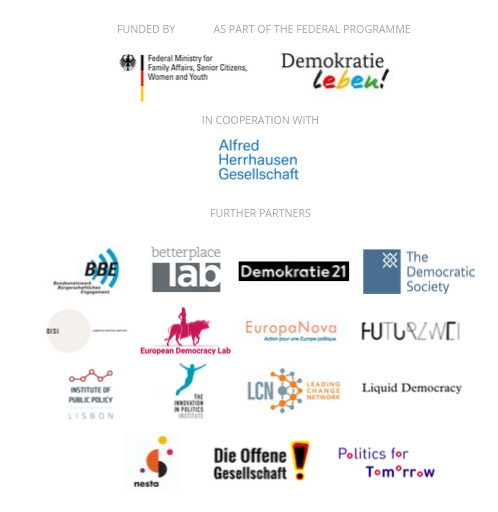
Fotos by Jacob & Alex, 2019
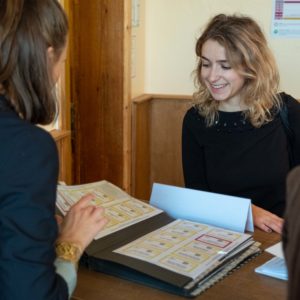
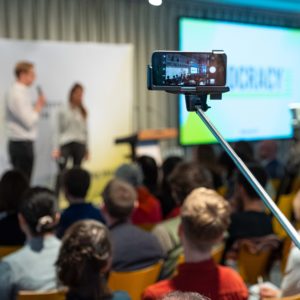
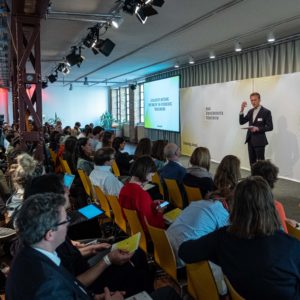
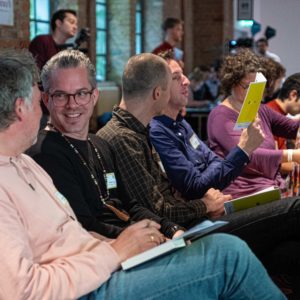
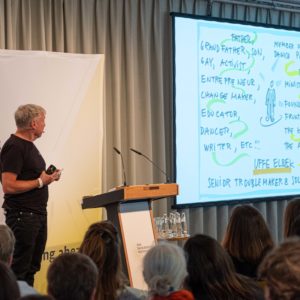


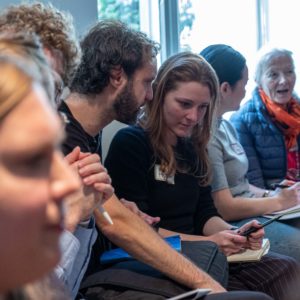
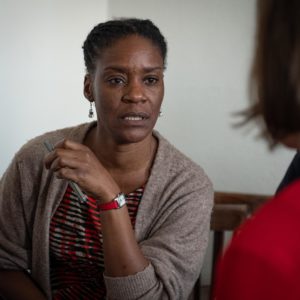
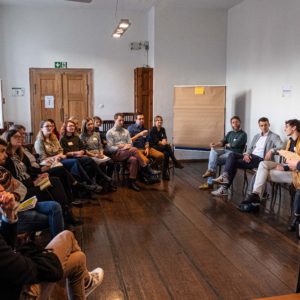
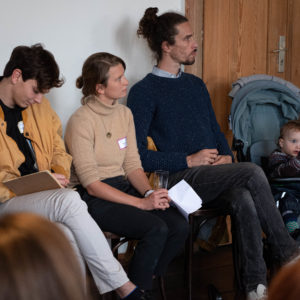
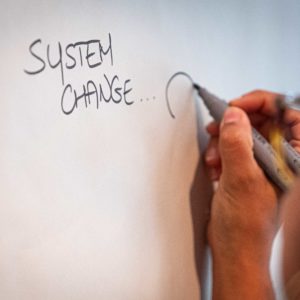
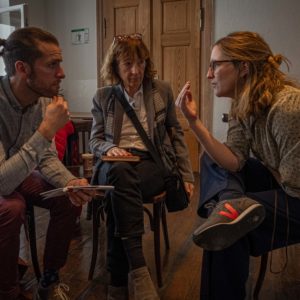
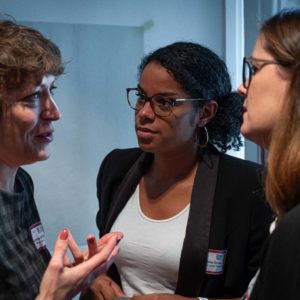
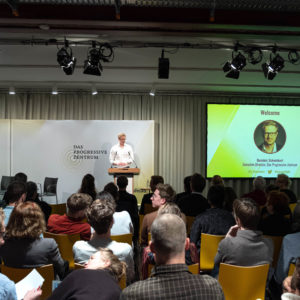


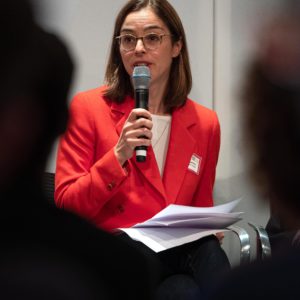
Want to keep up with the future of democracy?



